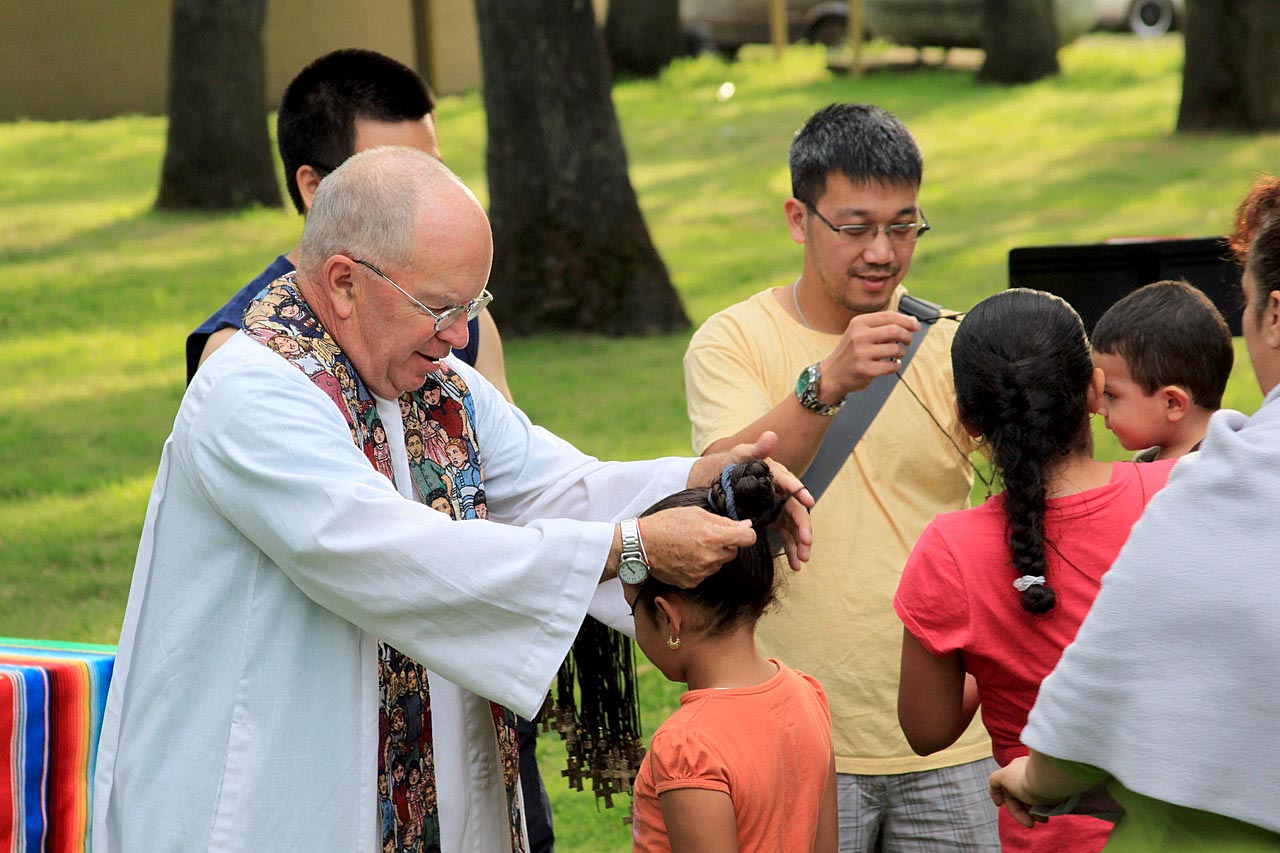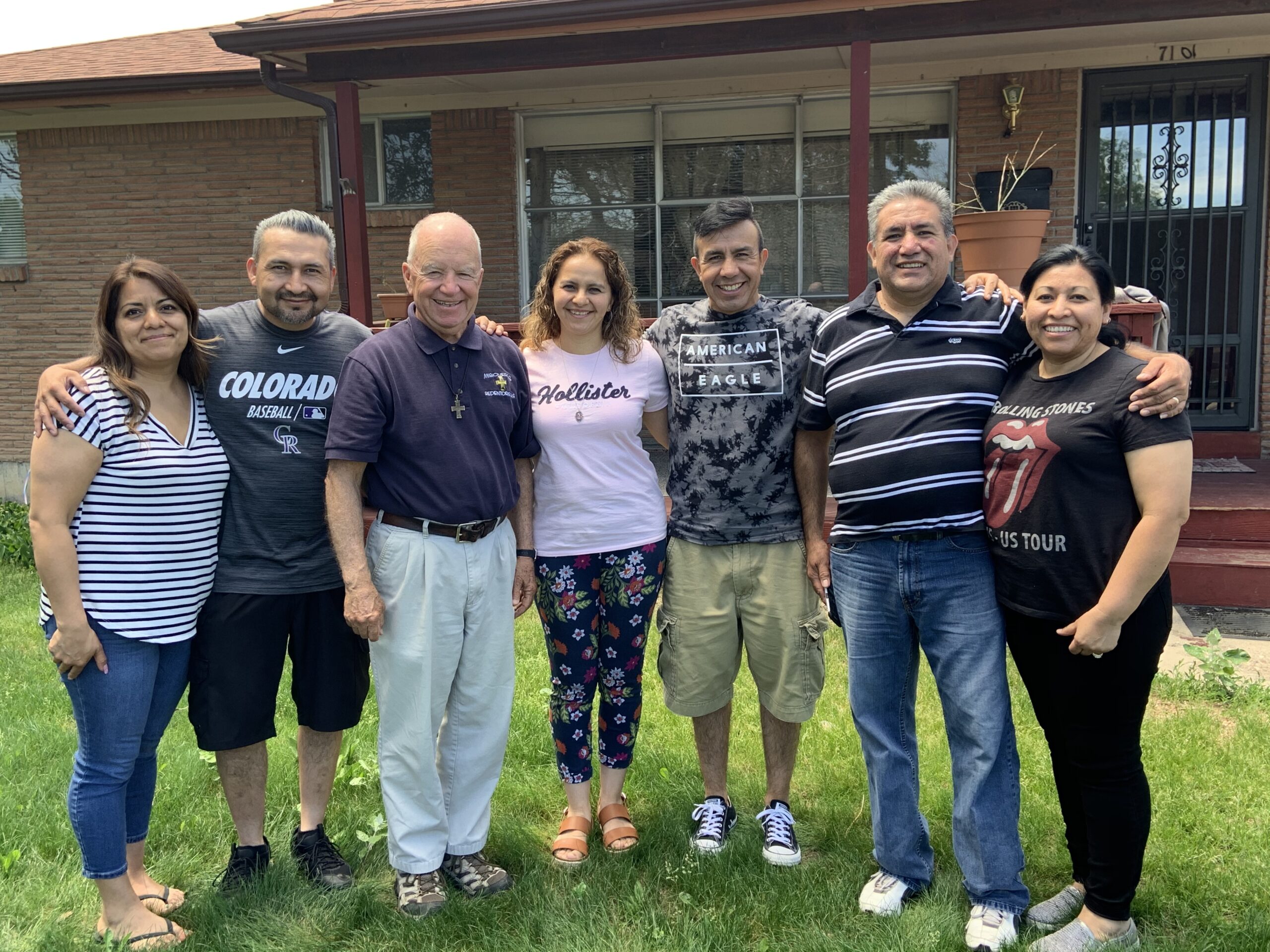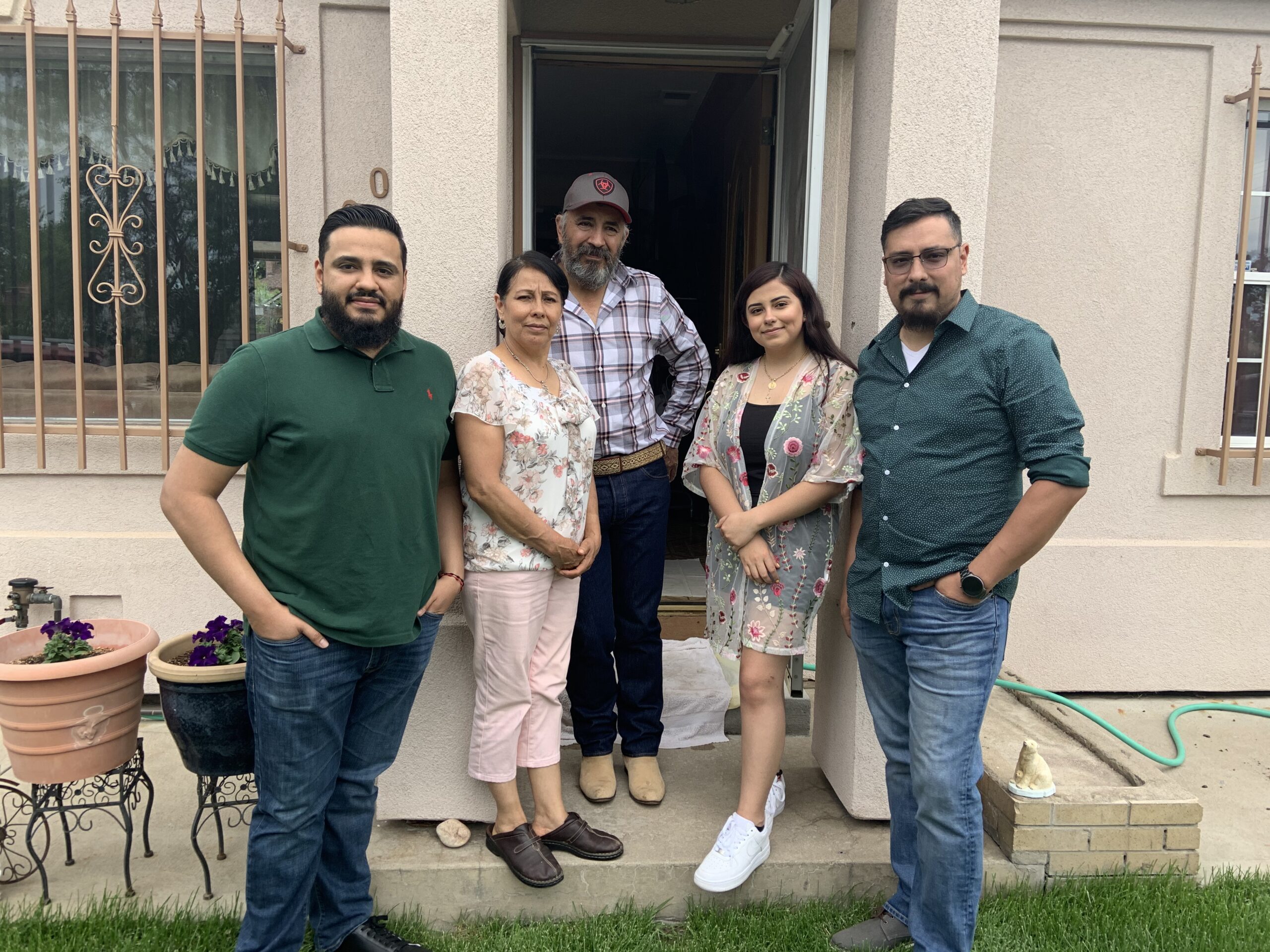Vocación – Llamado por nombre / Vocation – Called by Name
Jóvenes, les invito a una aventura
Dios dijo a Ciro, el rey de Persia, “Te he llamado por tu nombre”. Entré el seminario de edad de 14 porque, quise ser misionero. Pensé que estaba preparando por una aventura, ser misionero Redentorista y sacerdote. Quiero ofrecer reflexión después de cincuenta años de ser misionero Redentorista. Como miembro de una congregación religiosa, este mensaje es no solamente por hombres, pero también invito a mujeres considerar una aventura en la vida religiosa.
Youth, I invite you to an adventure
God said to Cyrus, the king of Persia, “I have called you by your name.” I was 14 when I entered the seminary with the dream of becoming a missionary. I believed that I was preparing for an adventure as a Redemptorist priest. I invite you to join me as I reflect on over 50 years as a Redemptorist missionary. It has been an adventure. As a member of a religious congregation, I also invite women to consider the adventure of religious life.
Un joven misionero Redentorista en los años 70 y 80
“Los más abandonados, a quienes en particular se envía la Congregación, son aquellos para quienes la Iglesia aún no ha podido proporcionar medios suficientes de salvación, aquellos que nunca han escuchado el mensaje de la Iglesia, o al menos no lo reciben como el “Buenas noticias”, y finalmente aquellos que sufren daños debido a la división en la Iglesia”. (C.SS.R. Constitución 3)
Trabajé principalmente en la pastoral juvenil y con familias de alcohólicos. Trabajar con los jóvenes siempre presenta desafíos para trabajadores religiosos. El gozo, la energía, la curiosidad y la inquietud de los jóvenes es una parte emocionante de la pastoral. El trabajo de la iglesia es animar y apoyar a los jóvenes a medida que desarrollan su carácter, autoestima y motivación para encontrarse con otros a su alrededor. También es el trabajo de la iglesia abordar las fuerzas negativas que nos rodean como el racismo, la apatía, el egoísmo y la desesperación.
Enseñé a niños en escuelas primarias y programas de educación religiosa, en escuelas secundarias y programas de preparación para la Confirmación, y preparé a los jóvenes para el matrimonio y la vida familiar. Los deportes y las actividades en la naturaleza siempre fueron parte de mi vida y me abrieron las puertas para conocer a jóvenes fuera de los límites institucionales de la iglesia. Entrené equipos de golf en Wichita y equipos de béisbol y fútbol en Wichita y Minneapolis.
Cuando fui a Minneapolis (1977-82), la gente de la parroquia me introdujo a la pesca y a llevar a grupos de jóvenes en viajes en canoa al área de canoas de Boundary Waters. Llevé quince grupos a la BWCA para viajes de cinco a ocho días. Fue una de mis actividades favoritas y más gratificantes con los jóvenes. Las aventuras de los viajes en canoa fueron oportunidades para escuchar las preocupaciones de los jóvenes y abrirlos a la naturaleza y al otro. En algunos de los viajes, maestros y catequistas experimentaron un tiempo fuera de la rutina normal de sus vidas para profundizar en su propio camino espiritual. Cuando me mudé a Denver en 1982, las montañas se convirtieron en una nueva frontera para explorar con la juventud y los ministros de jóvenes.
Mi relación con los alcohólicos y sus familias comenzó mientras estaba en el seminario. Escribí mi tesis de maestría sobre “Cuidado pastoral para familias de alcohólicos”. Mi actividad con Alcohólicos Anónimos, Alanon y con el Consejo Nacional Católico sobre Alcoholismo me llevó a entablar relaciones significativas con personas al margen de la sociedad y la Iglesia. Caminar con las personas en el camino de la aceptación y la recuperación abrió las puertas al cuidado de los marginados de la sociedad.
En 1984, pasé del ministerio parroquial a Director de Vocaciones de mi congregación. Fue un momento difícil para la pastoral vocacional, ya que muchos de nuestros seminarios lucharon por hacer frente a los cambios que se estaban produciendo en la sociedad. Entré en un sistema de seminario que recibía a adolescentes que soñaban con ser misioneros. Entré en un momento en que un presidente católico se dirigió a nosotros: “No preguntes qué puede hacer tu país por ti, pregunta qué puedes hacer tú por tu país”. El Concilio Vaticano II anunció un llamado a la renovación y la misión. Los seminarios de la escuela secundaria estaban llenos y muchos se construyeron a finales de los años 50 y 60. No esperábamos los desafíos de finales de los 60, 70 y 80. El movimiento de derechos civiles, la guerra de Vietnam y la reacción y la resistencia al cambio afectaron todos los aspectos de nuestras vidas. El SIDA y los choques culturales en la sociedad y en los círculos religiosos hicieron de esos años un capítulo difícil en mi propio camino espiritual.
Como director de vocaciones, caminé con muchos jóvenes que buscaban vidas con significado y servicio, pero también experimentando luchas para hacer compromisos a largo plazo en medio de la agitación de los tiempos. En 1986, nuestro Superior General Redentorista invitó a los Redentoristas y jóvenes de todo el mundo a celebrar el 300 aniversario del nacimiento de nuestro fundador, San Alfonso de Ligorio. El encuentro de jóvenes y redentoristas de todo el mundo puso en marcha un nuevo énfasis en nuestro compromiso con la pastoral juvenil. En 1988, fui a Roma para la beatificación de un Redentorista famoso por trabajar con jóvenes, el beato Kaspar Stanggassinger. Encontré otros Redentoristas trabajando con jóvenes. Nuestra congregación estaba haciendo un compromiso con nuevas iniciativas para llegar a los jóvenes, especialmente a los de 18 a 35 años.
Mis últimos tres años como Promotor de Vocaciones no fueron fáciles como reclutador para mi congregación, pero fueron quizás la mayor bendición de mis primeros diecisiete años de ministerio. Caminar con los jóvenes y escuchar a los jóvenes me preparó para entrar en la aventura misionera de mi vida como Redentorista y sacerdote.
(Mañana: Pastoral Hispana y la Casa San Alfonso)
A young Redemptorist missionary in the 1970s and ’80s
“The most abandoned, to whom in particular the Congregation is sent, are those for whom the Church has not yet been able to provide sufficient means of salvation, those who have never heard the Church’s message, or at least do not receive it as the “Good News”, and finally those who suffer harm because of division in the Church.” (C.SS.R. Constitution 3)
I worked primarily in youth ministry and with families of alcoholics. Working with youth always presents challenges for religious workers. The joy, energy, curiosity, and restlessness of spirit of young people is an exciting part of ministry. The work of the church is to animate and support young people as they develop their character, self-esteem and motivation to encounter others around them. It is also the work of the church to address the negative forces around us of racism, apathy, selfishness and despair.
I taught children in grade schools and religious education programs, in high schools and preparation programs for Confirmation, and preparing young people for marriage and family life. Sports and outdoor activities were always part of my life and opened doors for me to meet young people outside the institutional boundaries of the church. I coached golf teams in Wichita and baseball and soccer teams in Wichita and Minneapolis.
When I went to Minneapolis (1977-82), people of the parish introduced me to fishing and taking youth groups on canoe trips to the Boundary Waters Canoe Area. I led fifteen groups to the BWCA for trips of five to eight days. It was one of my favorite and most rewarding activities with young people. The adventures of the canoe trips were opportunities to listen to the real concerns of young people and to open young people to nature and to each other. On some of the trips, teachers and catechists went to experience time away from the normal routine of life to go deeper into their own spiritual journey. When I moved to Denver in 1982, the mountains became a new wilderness to explore with youth and youth ministers.
My involvement with alcoholics and their families began while I was in the seminary. I wrote my Master’s thesis on “Pastoral Care for Families of Alcoholics.” My activity with Alcoholics Anonymous, Alanon and with the National Catholic Council on Alcoholism brought me into significant relationships with people on the fringes of society and the Church. Walking with people on the path to acceptance and recovery opened doors to caring for the marginalized of society.
In 1984, I moved from parochial ministry to be Vocation Director for my congregation. It was a difficult time for vocation ministry as many of our seminaries struggled to meet changes taking place in society. I entered a seminary system that received adolescents who dreamed of being missionaries. I entered at a time when a Catholic President addressed us, “Ask not what your country can do for you, ask what you can do for your country.” The Second Vatican Council announced a call to renewal and mission. High School seminaries were full and many were built in the late 1950’s and 60’s. We did not expect the challenges of the late 1960s, ’70s and ’80s. The Civil Rights movement, the Viet Nam War, and reaction and resistance to change affected all aspects of our lives. AIDS and cultural clashes in society and in religious circles made those years a difficult chapter in my own spiritual journey.
As Vocation Director, I walked with many young people seeking lives of meaning and service, but also experiencing struggles with making long term commitments in the midst of the turmoil of the times. In 1986, our Redemptorist Superior General invited Redemptorists and young people around the world to celebrate the 300th anniversary of the birth of our founder, St. Alphonsus Liguori. The meeting of young people and Redemptorists around the world set in motion a new emphasis in our commitment to youth ministry. In 1988, I went to Rome for the beatification of a Redemptorist famous for working with youth, Blessed Kaspar Stanggassinger. At the beatification, I met other Redemptorists from around the world working with youth. Our Congregation was making a commitment to new initiatives in reaching out to young people, especially those from 18-35 years old.
My last three years as Vocation Director were not easy as a recruiter for my congregation, but were perhaps the greatest blessing of my first seventeen years of ministry. Walking with young people and listening to youth prepared me to enter the missionary adventure of my life as Redemptorist and priest.
(Tomorrow: Hispanic Ministry and Casa San Alfonso)





